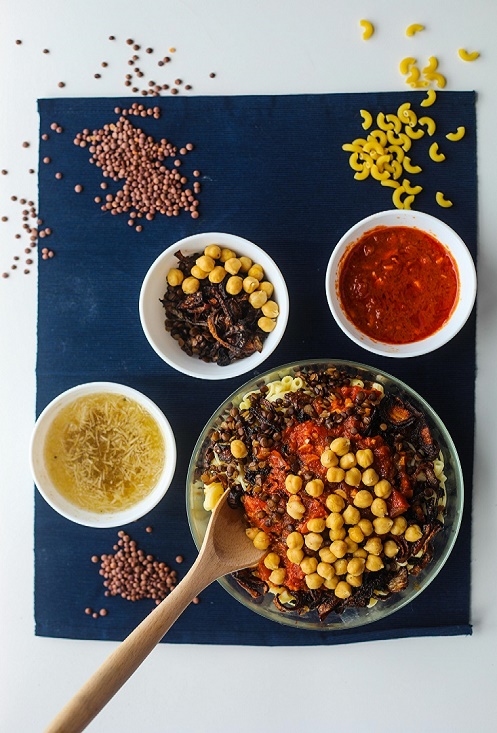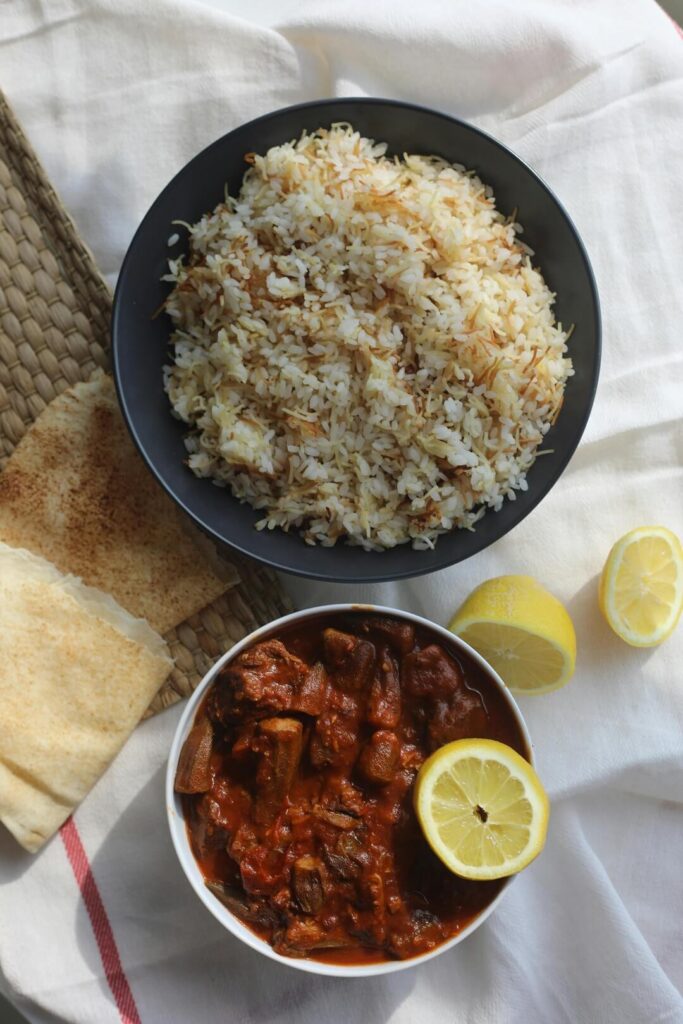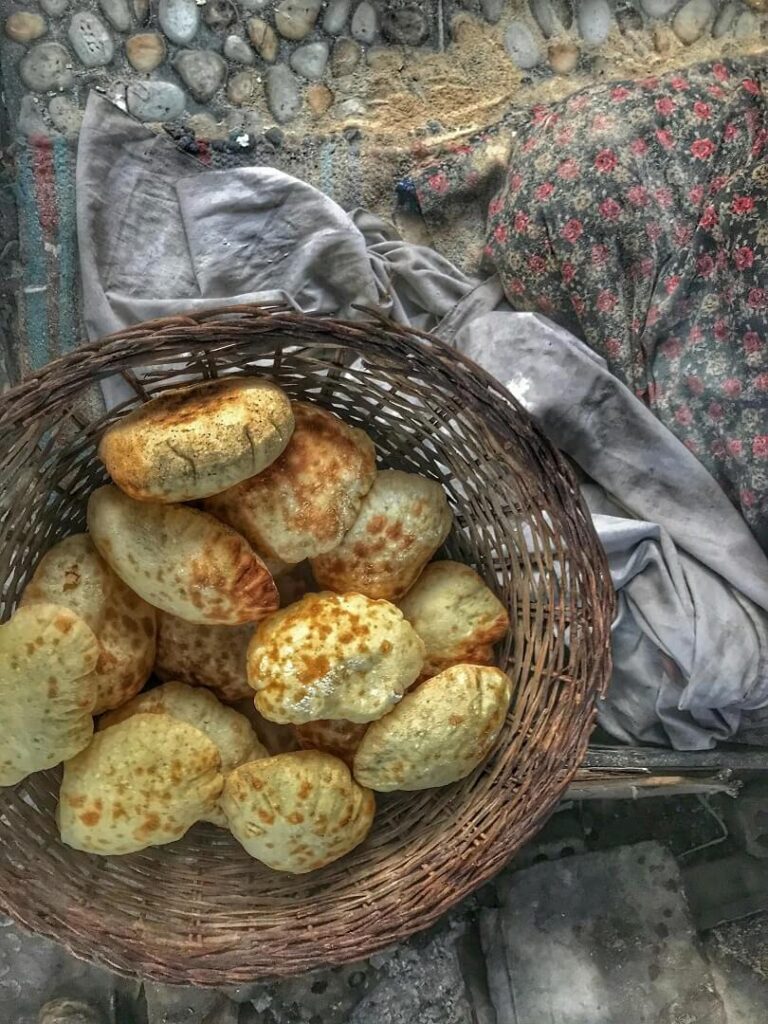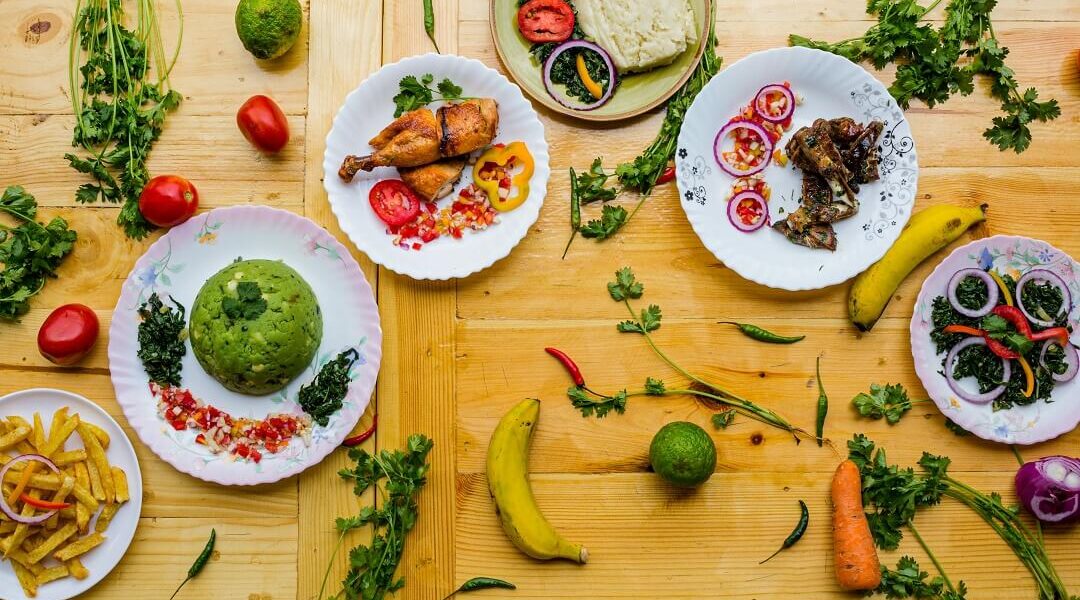Egyptian culture is a vibrant tapestry woven from thousands of years of history, art, and, most importantly, food. The culinary traditions of Egypt are not just a means of sustenance; they are a living reflection of the country’s rich heritage. From the hustle and bustle of Cairo’s streets to the quiet villages along the Nile, food plays a central role in daily life, celebrations, and religious practices. Egyptian cuisine is a journey into the heart of the nation, where every bite tells a story of the past and every dish is a testament to the enduring spirit of its people. In this article, we will explore how Egyptian culture comes alive through traditional dishes, getting to the bottom of the deep roots of these culinary traditions, the ancient flavors passed down through generations, and the cultural significance that these iconic recipes hold today. We will also examine the role of traditional Egyptian dishes in preserving cultural identity and how the country’s food practices influence everything from street food to grand feasts.
The Deep Roots of Egyptian Culture in Culinary Traditions
Egyptian culture is deeply intertwined with its culinary traditions, which date back thousands of years to the time of the Pharaohs. The country’s geographical location, bordered by the Mediterranean Sea to the north and the vast deserts to the east and west, has played a significant role in shaping its food culture. The Nile River, often referred to as the lifeblood of Egypt, has provided fertile soil that has sustained the country’s agriculture for millennia. This abundance of natural resources has given rise to a rich variety of ingredients that form the foundation of traditional Egyptian dishes.
The connection between Egyptian culture and its culinary practices is evident in the rituals and customs surrounding food preparation and consumption. Meals are often communal affairs, with families gathering around large platters of food to share not just nourishment but also stories, laughter, and a sense of togetherness. This communal aspect of dining is a reflection of the broader Egyptian culture, where family and social bonds are highly valued.
In addition to its social significance, Egyptian food is also closely linked to religious practices. For example, certain dishes are traditionally prepared and consumed during religious holidays and festivals, such as Ramadan and Eid. These dishes not only provide sustenance but also serve as a reminder of the country’s spiritual heritage and the importance of maintaining cultural traditions.



Ancient Flavors: Traditional Egyptian Dishes Passed Down Through Generations
The traditional Egyptian dishes that we enjoy today are the result of centuries of culinary evolution, influenced by various civilizations that have left their mark on the country. From the ancient Egyptians to the Greeks, Romans, and Ottomans, each culture has contributed to the rich tapestry of flavors that define Egyptian cuisine.
One of the most iconic traditional Egyptian dishes is Koshari, a hearty and flavorful mix of rice, lentils, chickpeas, and pasta, topped with a tangy tomato sauce and crispy fried onions. This dish, which has its roots in ancient Egypt, has been passed down through generations and is now a beloved staple of Egyptian street food.
Another traditional dish that has stood the test of time is Ful Medames, a simple yet satisfying meal made from slow-cooked fava beans, seasoned with garlic, lemon juice, and olive oil. This dish, which dates back to the time of the Pharaohs, is a breakfast favorite in Egypt and is often enjoyed with a variety of toppings such as hard-boiled eggs, fresh vegetables, and pita bread. The preservation of these ancient flavors is not just about maintaining culinary traditions; it is also about keeping the stories and memories of the past alive. Each traditional Egyptian dish carries with it the history of the people who created it, the struggles they endured, and the celebrations they shared. By continuing to prepare and enjoy these dishes, Egyptians are not only honoring their ancestors but also ensuring that their cultural heritage is passed on to future generations.



Taste the Cultural Significance of Iconic Egyptian Recipes
Traditional Egyptian dishes are more than just food; they are a window into the culture, values, and history of the country. Each dish carries a deep cultural significance, often reflecting the region it comes from, the season in which it is prepared, or the occasion for which it is served.
Take, for example, *molokhia*, a dish made from finely chopped jute leaves cooked in a rich broth, typically served with rice and chicken or rabbit. Molokhia is not just a meal; it is a symbol of Egyptian resilience and resourcefulness. During times of hardship, Egyptians turned to this nutrient-rich plant, which could be grown in abundance, to sustain themselves. Today, it remains a beloved dish that represents the enduring spirit of the Egyptian people.
Another example is *fattah*, a dish traditionally served during celebrations such as weddings and religious holidays. Fattah consists of layers of rice, crispy bread, and tender meat, topped with a garlic and vinegar sauce. This dish is a testament to the importance of hospitality in Egyptian culture, where sharing food with loved ones is seen as a way to strengthen social bonds and express gratitude.
Even the humble *basbousa*, a sweet semolina cake soaked in syrup, holds cultural significance. This dessert is often prepared during religious festivals and family gatherings, symbolizing the sweetness of life and the joy of togetherness. Through these iconic recipes, we can taste the essence of Egyptian culture, with each dish offering a unique perspective on the values and traditions that define the country.
The Role of Traditional Egyptian Dishes in Preserving Cultural Identity
In a rapidly changing world, where globalization and modernization are transforming societies at an unprecedented pace, the role of traditional Egyptian dishes in preserving cultural identity cannot be overstated. For many Egyptians, these dishes are a tangible link to their heritage, serving as a reminder of who they are and where they come from.
Traditional Egyptian dishes play a crucial role in the transmission of cultural knowledge from one generation to the next. In many families, recipes are passed down orally, with each generation adding its own touches while preserving the essence of the dish. This process of transmission not only ensures that these culinary traditions are kept alive but also strengthens the cultural identity of those who inherit them.
Moreover, traditional Egyptian dishes are a source of pride for the Egyptian people. They are a testament to the country’s rich history, diverse influences, and culinary ingenuity. By celebrating and sharing these dishes, Egyptians are able to assert their cultural identity in a world that is increasingly homogenized.
The preservation of traditional Egyptian dishes is also a form of resistance against cultural erosion. In a globalized world, where fast food chains and international cuisines are becoming ubiquitous, maintaining traditional food practices is a way for Egyptians to hold onto their unique cultural identity. It is a way of saying that while they may embrace the new, they will not forget the old.

From Street Food to Feasts: How Egyptian Culture Influences Culinary Practices
Egyptian culture has a profound influence on the country’s culinary practices, from the simplest street food to the most elaborate feasts. The way food is prepared, served, and consumed in Egypt is a reflection of the values and customs that have shaped the country’s identity over millennia.
Street food is an integral part of Egyptian culture, offering a window into the daily lives of the people. Vendors selling Koshari, Falafel (known locally as *ta’amiya*), and Shawarma can be found on almost every corner, providing affordable and delicious meals to locals and tourists alike. These street foods are not just convenient; they are a testament to the ingenuity and resourcefulness of the Egyptian people, who have perfected the art of creating flavorful dishes from simple ingredients.
On the other end of the spectrum, Egyptian feasts are grand affairs that showcase the country’s rich culinary traditions. Whether it’s a wedding, a religious holiday, or a family gathering, these feasts are marked by an abundance of food, carefully prepared and lovingly presented. Traditional dishes such as Mahshi (stuffed vegetables), Kofta (grilled minced meat), and Baklava are often served, highlighting the diversity and complexity of Egyptian cuisine.
The cultural significance of these culinary practices extends beyond the food itself. In Egypt, meals are an opportunity to connect with others, to share stories, and to celebrate life. Whether it’s a quick bite from a street vendor or a multi-course feast, the act of eating is infused with cultural meaning, reflecting the values of hospitality, community, and generosity that are central to Egyptian culture.
Egyptian culture is a living, breathing entity that comes alive through its traditional dishes. These culinary traditions, passed down through generations, are not just a means of sustenance but a powerful expression of the country’s history, values, and identity. From the deep roots of Egyptian culture to the ancient flavors that have stood the test of time, each dish tells a story, offering a unique insight into the rich tapestry of Egyptian life. The cultural significance of these iconic recipes is profound, serving as a reminder of the importance of preserving cultural identity in a rapidly changing world. Whether it’s a humble street food or a grand feast, the culinary practices of Egypt are a reflection of the values and customs that have shaped the country’s identity for millennia. Through these traditional dishes, Egyptian culture continues to thrive, offering a taste of the past and a promise for the future.
Experience the Magic: A Culinary Adventure Awaits
Whether you’re planning a trip to Egypt or simply curious to explore a new cuisine, Egyptian food offers a delicious journey through time and tradition. So, fire up your stove, gather your loved ones, or book your Egyptian adventure! Embrace the spirit of discovery and embark on a culinary adventure to the land of the Pharaohs, one delicious bite at a time. Remember, the best souvenirs are memories made and flavors savored.

